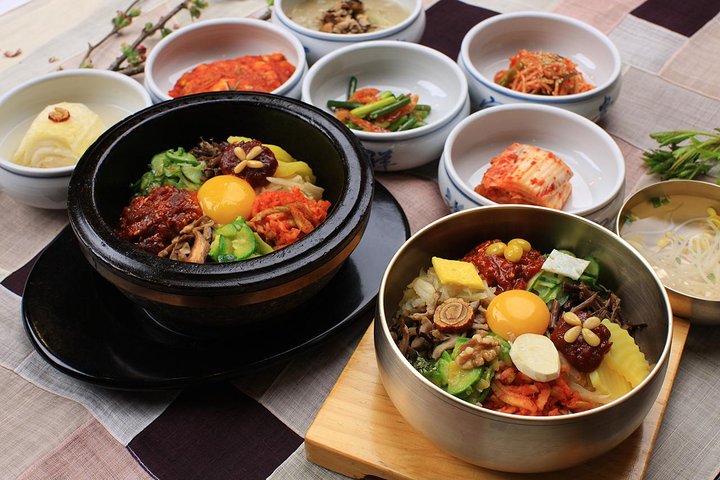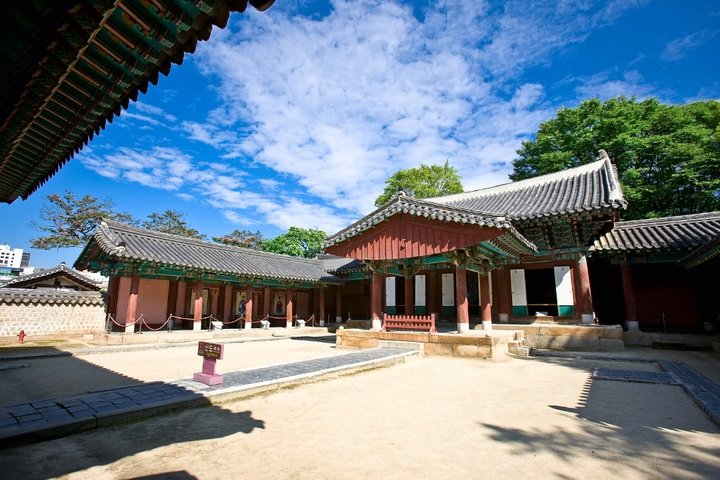Exploring Jeonju: A Culinary and Cultural Odyssey in Korea’s Best Taste City
Drawn by the allure of Jeonju’s rich cultural tapestry and renowned culinary scene, I embarked on a journey to explore the heart of Korea’s “Best Taste City.” Join me as I delve into the vibrant streets of Jeonju Hanok Village, where tradition and modernity coexist in perfect harmony.
A Journey Through Time: Jeonju Hanok Village
As I stepped into Jeonju Hanok Village, I was immediately transported to a different era. The village, with its 800 traditional hanok-style buildings, is a living testament to Korea’s rich history and culture. The unique architecture, with its slightly raised roof edges, is not only visually stunning but also serves a practical purpose. The ondol, a sub-floor heating system, is a testament to the ingenuity of Korean design, ensuring warmth and comfort in every home.
Walking through the village, I couldn’t help but feel a deep sense of connection to the past. The streets were alive with the sounds of traditional Korean music, and the air was filled with the aroma of delicious street food. I was particularly drawn to the vibrant colors and intricate designs of the hanboks worn by both locals and tourists. Renting a hanbok from a local studio, I felt a sense of pride and belonging as I joined the throngs of people exploring the village.
The village is not just a place to admire beautiful architecture; it’s a hub of cultural activity. From traditional tea ceremonies to calligraphy workshops, there is something for everyone to enjoy. I found myself lost in the beauty of the Gyeonggijeon Shrine, where the history of the Joseon Dynasty comes to life through its exhibits and royal portraits. The Jeondong Catholic Church, with its stunning architecture and serene atmosphere, offered a moment of reflection amidst the bustling village.
Culinary Delights: A Taste of Jeonju
Jeonju is renowned as Korea’s “Best Taste City,” and it’s easy to see why. The culinary tour through the village was a feast for the senses. Our first stop was a traditional restaurant where we indulged in bibimbap, a dish that originated in Jeonju. The combination of fresh vegetables, savory beef, and perfectly cooked rice, all topped with a spicy gochujang sauce, was a revelation.
Next, we ventured to a local makgeolli house, where we sampled the famous rice wine. The slightly sweet and tangy drink was the perfect accompaniment to the array of side dishes that filled our table. From savory pancakes to spicy kimchi, each bite was a celebration of Korean flavors.
The culinary journey continued as we explored the bustling Nambu Market. The market is a treasure trove of local delicacies, from blood sausage hot-pot to torched beef sushi. I was particularly taken with the pan-fried mung-bean cake, a crispy and flavorful treat that left me wanting more. The market is a testament to Jeonju’s vibrant food culture, offering a taste of both traditional and modern Korean cuisine.
A Cultural Tapestry: Exploring Jeonju’s Heritage
Beyond the culinary delights, Jeonju offers a rich tapestry of cultural experiences. The Gyeonggijeon Shrine, with its memorial portraits and ancestor tablets, provides a glimpse into the lives of the rulers of the Joseon Dynasty. The shrine’s serene gardens and historical exhibits offer a peaceful retreat from the bustling village.
The Jeondong Catholic Church, one of Korea’s oldest Catholic churches, is a beautiful blend of traditional Korean and Western architectural styles. Its stunning stained glass windows and intricate woodwork are a testament to the craftsmanship of the time. The church is a place of quiet reflection, offering a moment of peace amidst the vibrant energy of Jeonju.
As I wandered through the village, I was struck by the harmonious blend of old and new. The traditional hanok buildings stand alongside modern cafes and shops, creating a unique cultural landscape. Jeonju is a city that embraces its heritage while looking to the future, offering visitors a truly immersive experience.
In conclusion, my journey through Jeonju Hanok Village was a profound exploration of Korea’s rich cultural heritage. From the stunning architecture to the delicious cuisine, every moment was a celebration of tradition and innovation. I left Jeonju with a deeper appreciation for Korea’s history and a longing to return to this enchanting city.















































